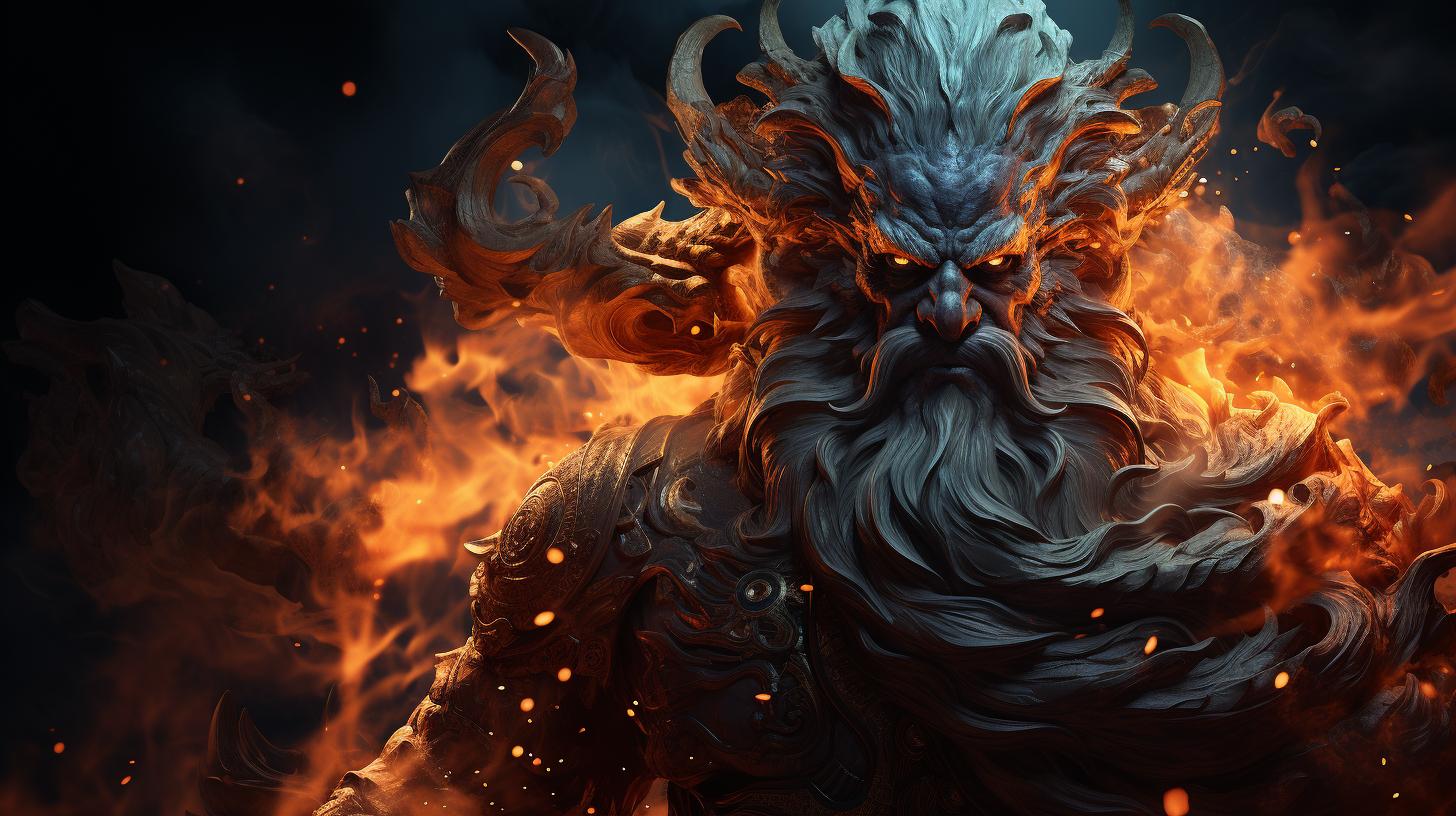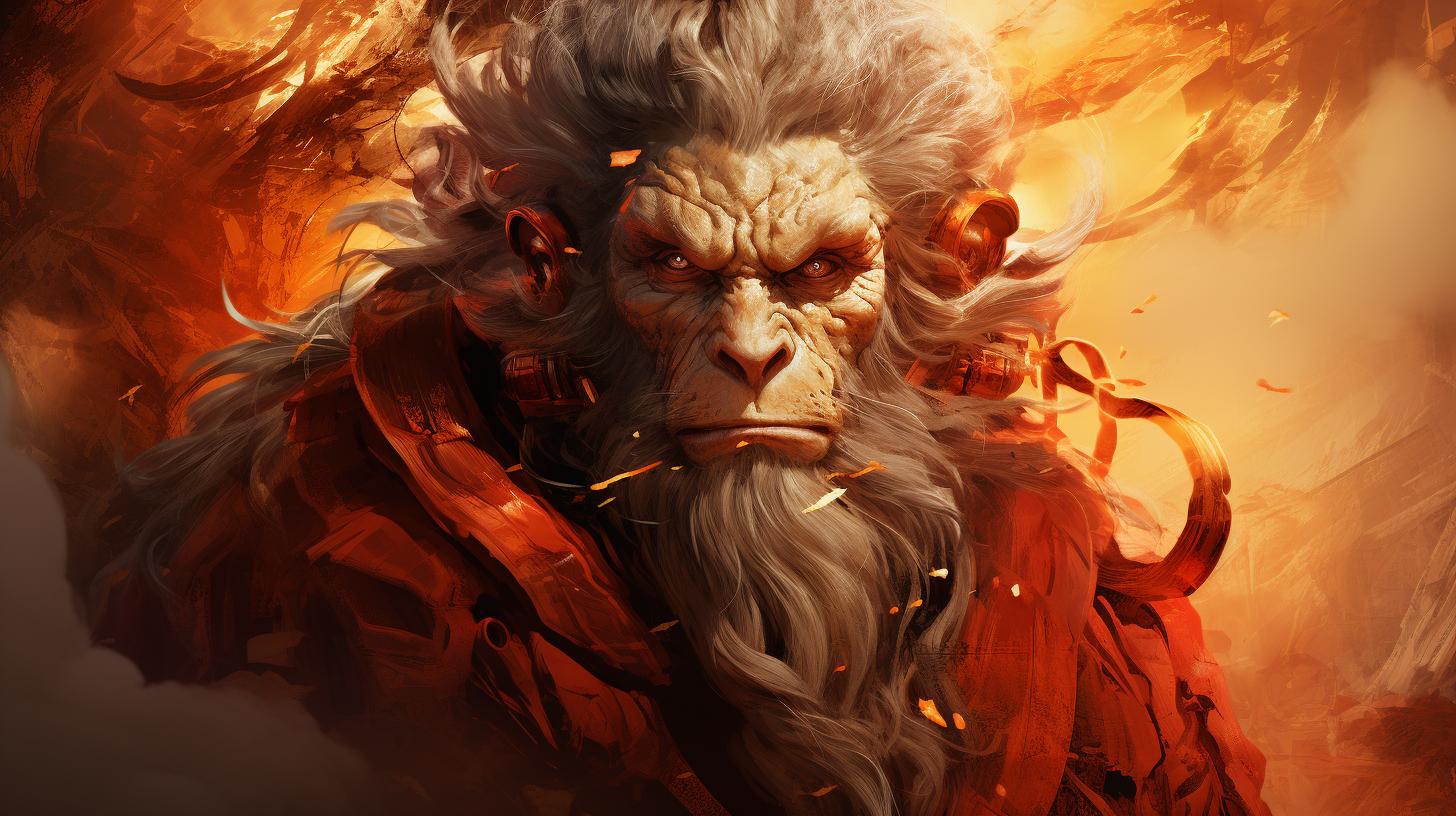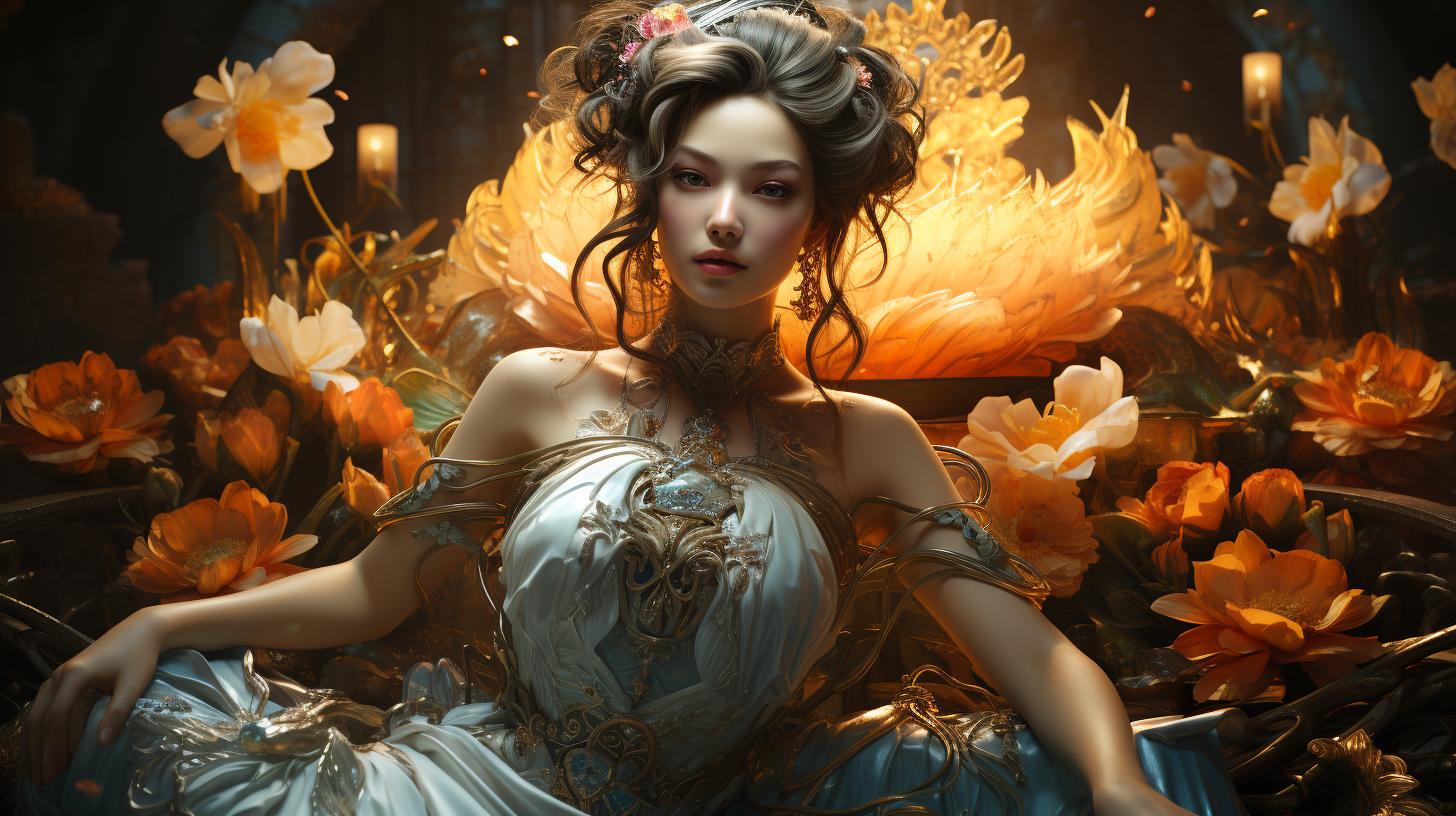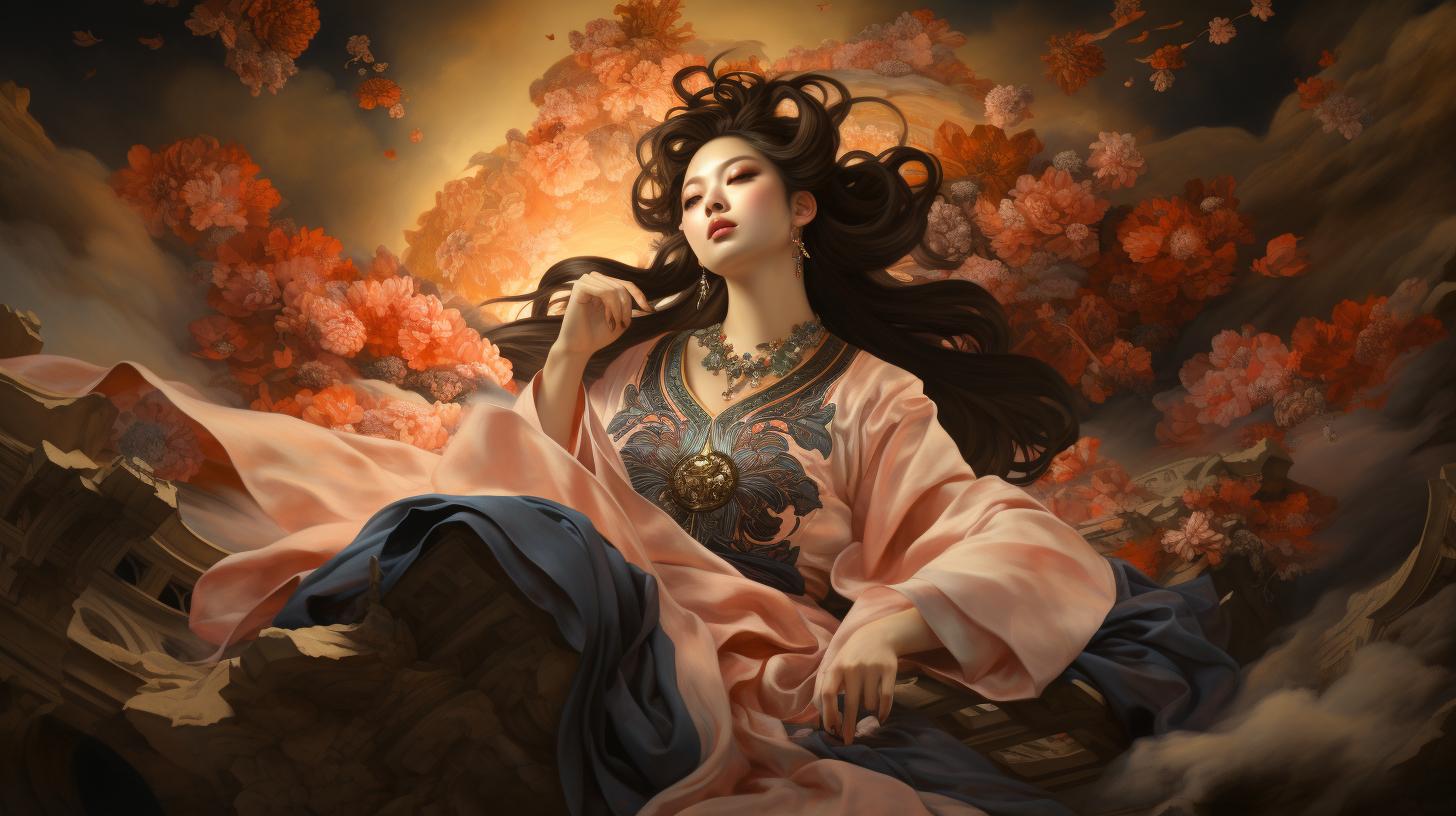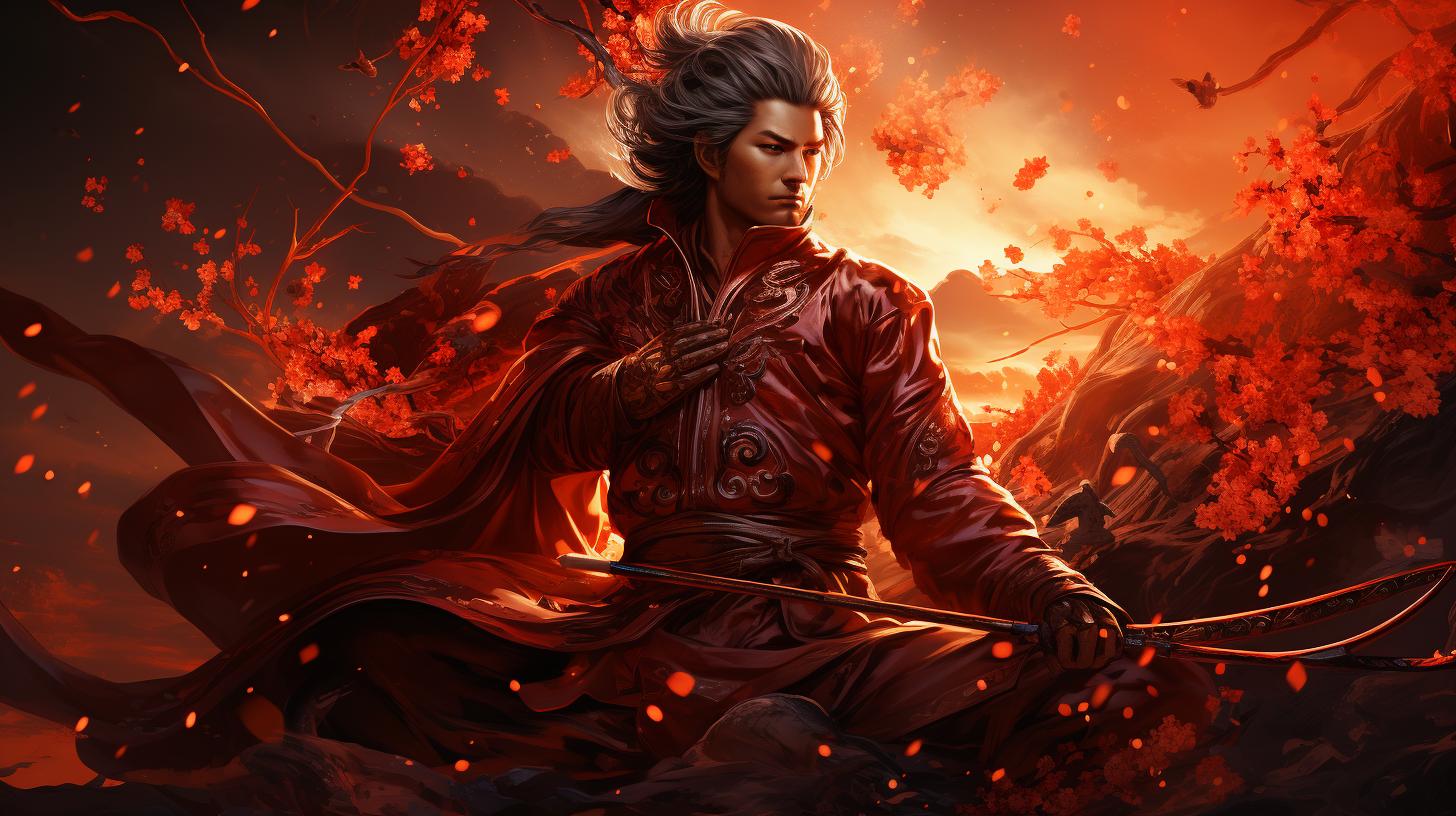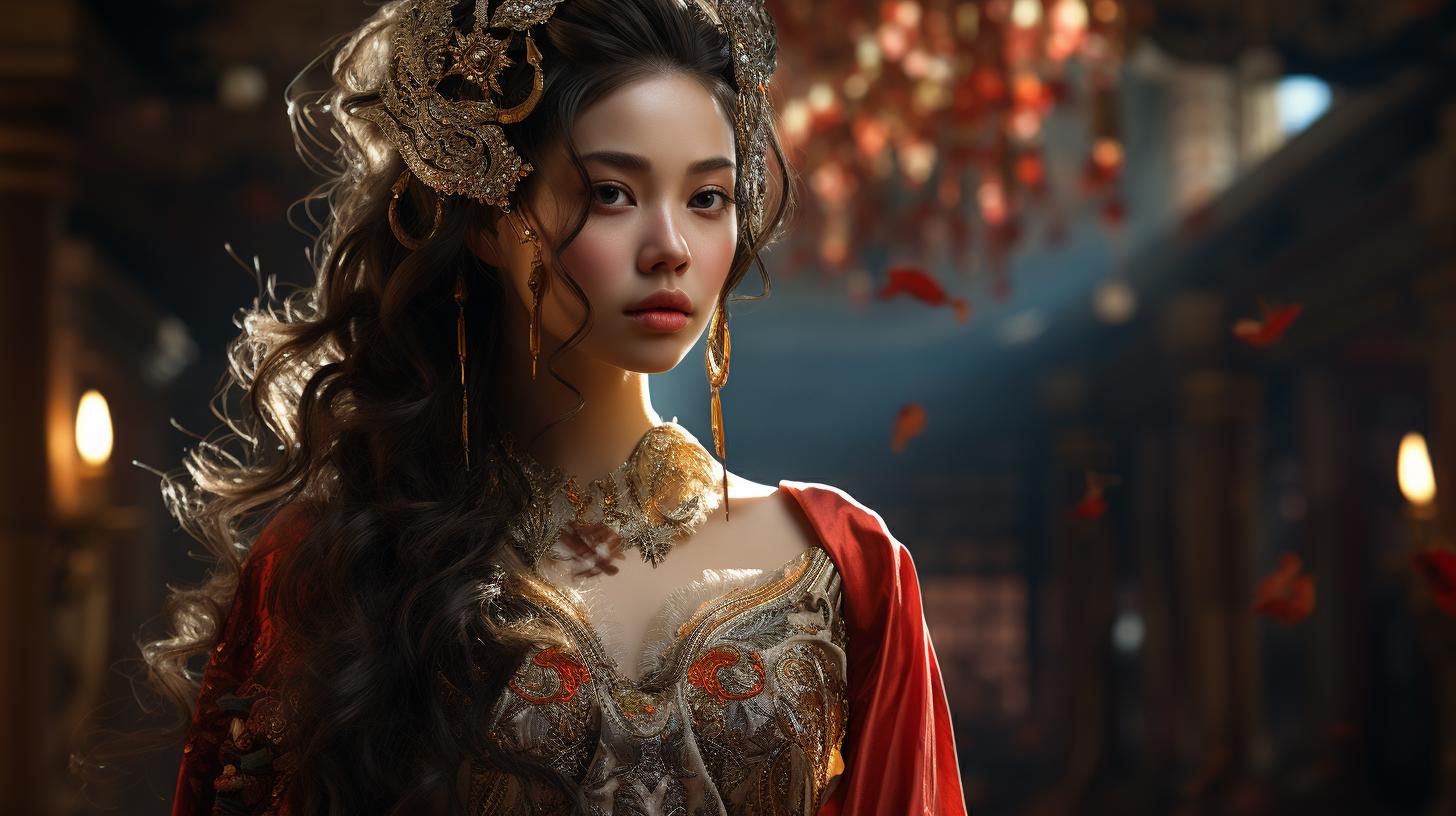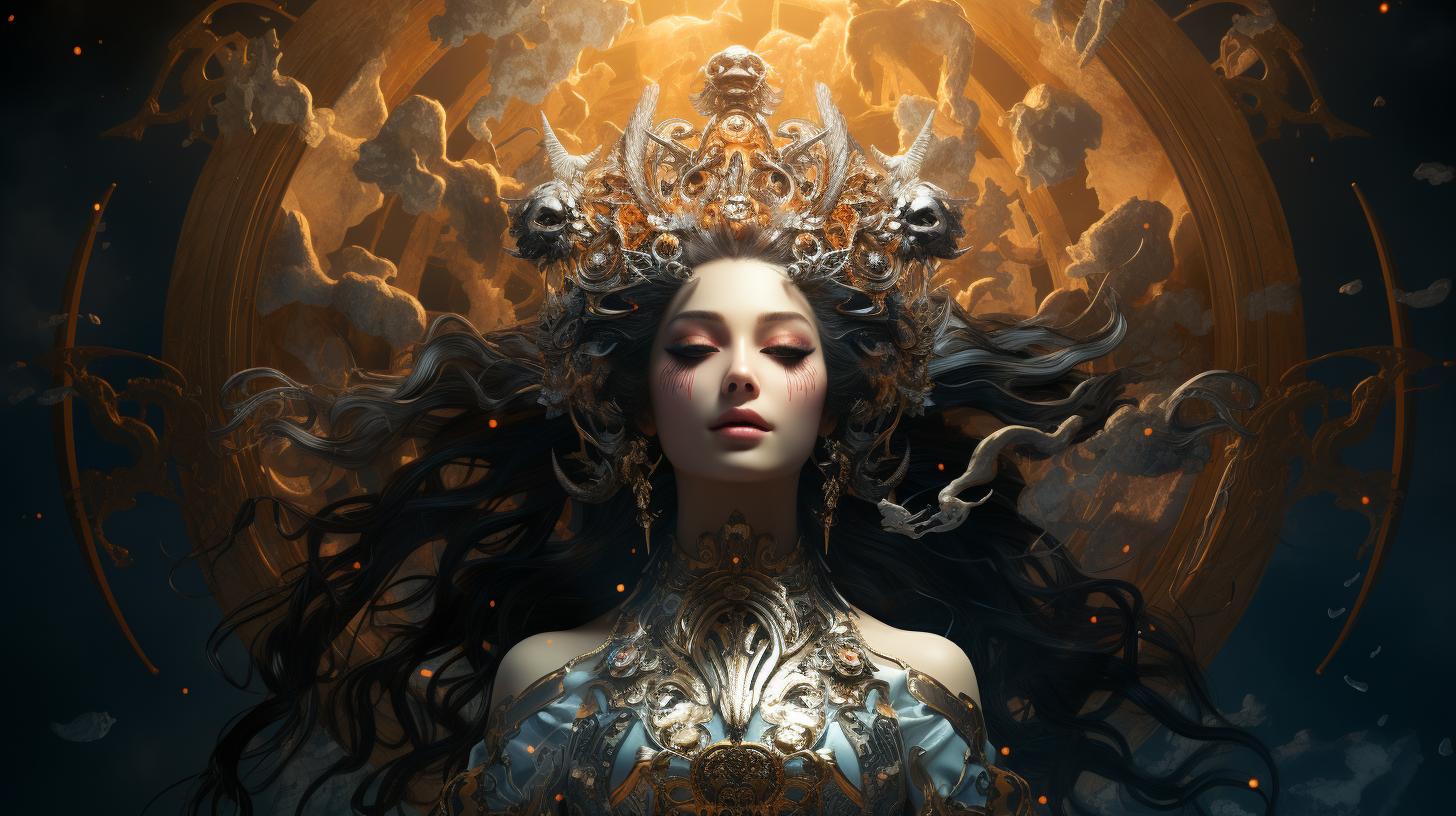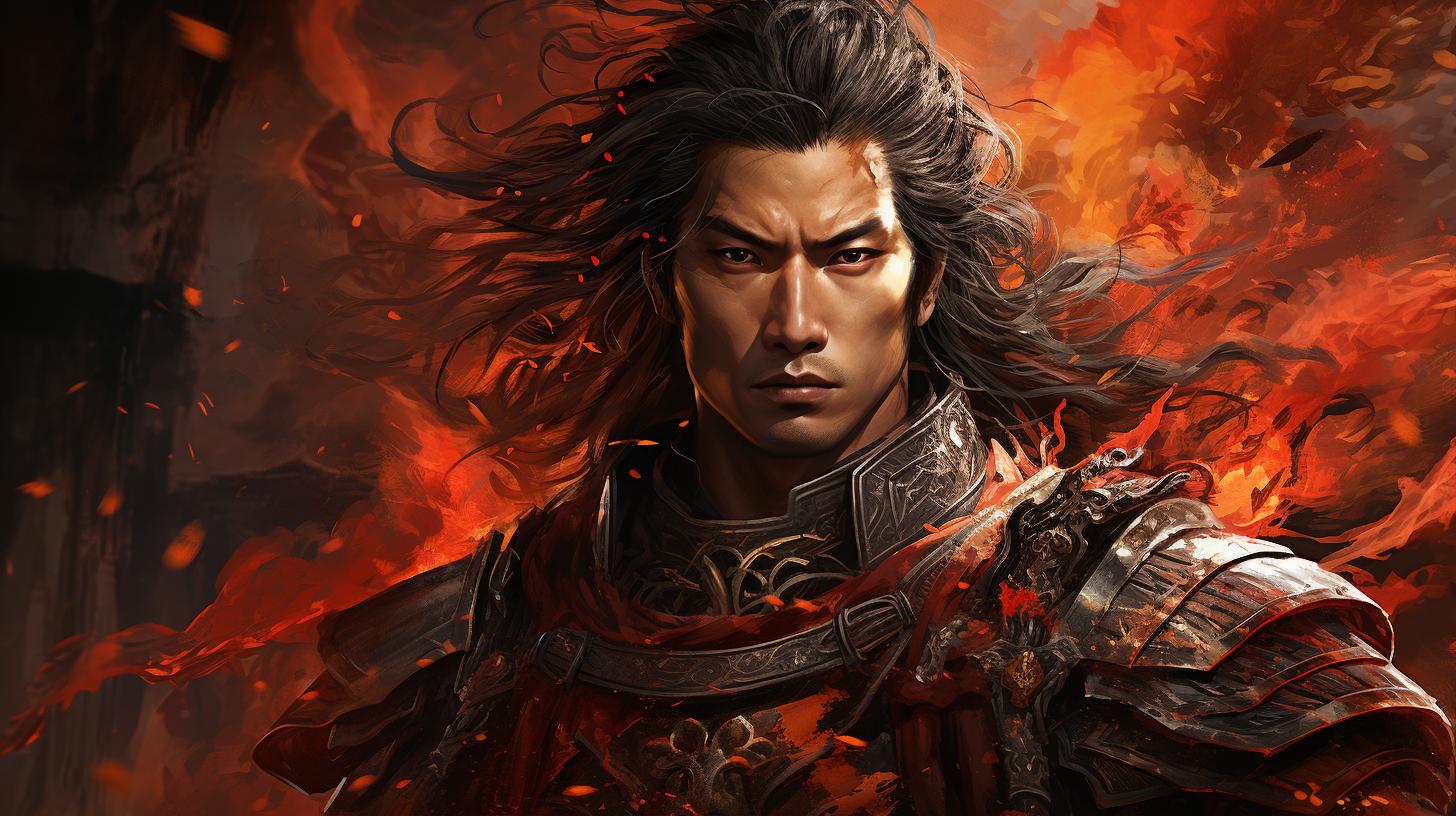Yan Wang Chinese God: The Ruler of the Underworld in Chinese Mythology
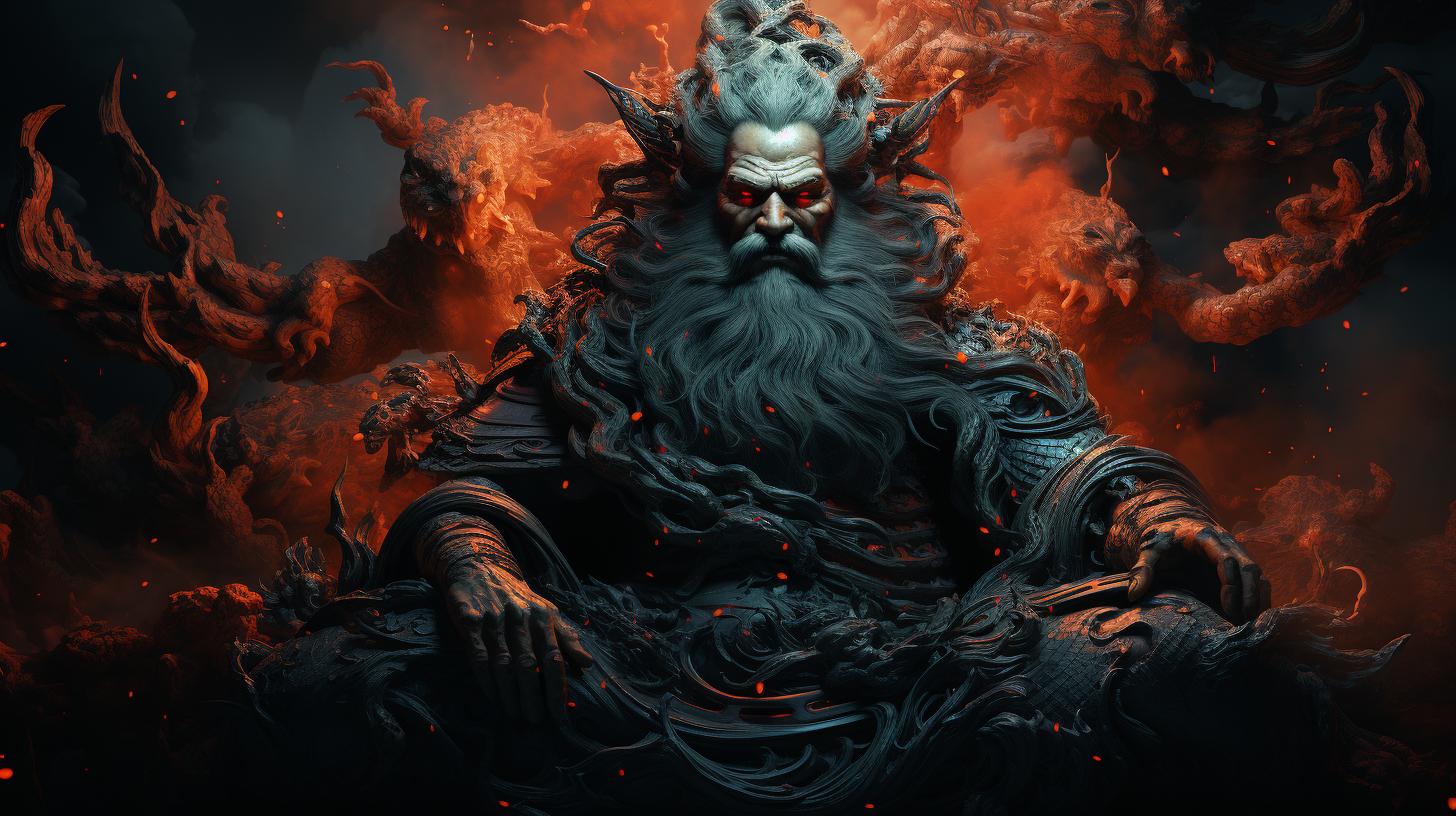
Yan Wang Chinese god, also known as the King of Hell in Chinese mythology, holds dominion over the underworld and judges the fate of the deceased. With a fearsome appearance and two formidable guardians named Ox-Head and Horse-Face, Yan Wang presides over the ten layers of Diyu, where souls are punished according to the severity of their crimes.
This article provides an overview of Diyu, explores Yan Wang’s appearance and companions, delves into his role in the afterlife, and examines his representation in popular culture and beliefs. Join us on this journey through the fascinating realm of Yan Wang and the Chinese Hell.
The Ten Layers of Diyu in Chinese Hell
Explore the depths of the Chinese Hell, known as Diyu, which consists of ten distinct layers. Each layer holds its significance and punishments based on the severity of one’s sins. Let’s take a closer look at Diyu and its intricate structure.
Overview of Diyu and its Significance
Diyu is an integral part of Chinese mythology and the afterlife belief system. It is a realm where souls are sent after death to face their judgment and receive punishment accordingly.
The concept of Diyu serves as a deterrent to prevent individuals from committing moral wrongdoings, emphasizing the importance of virtuous living.
Punishments and Judgment in each Layer of Diyu
Within the ten layers of Diyu, the severity of punishments increases as one descends further into its depths. Each layer is designated to punish specific sins and transgressions committed by the deceased.
The punishments range from torturous ordeals to grueling tasks, designed to cleanse and purify the soul.
The First Layer: Mountain of Knives
Souls who have committed minor offenses are subjected to the torment of walking on a mountain covered in sharp knives. This layer serves as a starting point for purification and redemption.
The Second Layer: Mountain of Ice
Souls guilty of lying and deceit are punished by being confined to a mountain made of ice, enduring exceedingly cold temperatures.
The Third Layer: Mountain of Blades
Souls who have caused pain or harm to others face the anguish of crawling on a mountain adorned with razor-sharp blades.
The Fourth Layer: Mountain of Flames
Individuals guilty of theft and robbery endure the scorching heat of a mountain engulfed in flames.
The Fifth Layer: Mountain of Blood
This layer is reserved for souls who have committed heinous acts of violence and murder.
The Sixth Layer: Mountain of Filth
Individuals who have practiced deceit and betrayal are sent to a mountain covered in filth and foul substances.
The Seventh Layer: Mountain of Snakes
Souls who have been involved in adultery and infidelity face the torment of being surrounded by venomous snakes.
The Eighth Layer: Mountain of Swords
This layer punishes those who have taken a life prematurely, subjecting them to the constant threat of swords hanging overhead.
The Ninth Layer: Mountain of Flames and Swords
Souls guilty of corrupt practices and abusing their power experience the combined torment of fiery infernos and falling swords.
The Tenth Layer: Avici
The final and most severe level of Diyu, reserved for the gravest offenders, where they endure eternal suffering and unending torment.
The ten layers of Diyu serve as a reminder of the consequences and necessity of leading a virtuous life, offering a chance for redemption and purification for the souls who have strayed from the path of righteousness.
Yan Wang’s Appearance and Companions
Description of Yan Wang’s Terrifying Form
Yan Wang, the mighty King of Hell in Chinese mythos, possesses a visage that strikes fear into the hearts of mortals. His terrifying form is adorned with bulging, oversized eyes that seem to pierce through the darkness, a deep crimson complexion that symbolizes his association with the underworld, and a long, flowing black beard that adds to his menacing presence.
With a stature that exudes authority, Yan Wang commands respect as the supreme ruler of the infernal realms. Legends describe his very appearance as reminiscent of the burnt joss paper used in funeral rituals, adding a haunting aura to his already fearsome image.
Ox-Head and Horse-Face: The Guardians of the Underworld
Ox-Head, as his name implies, possesses the head of an ox, while Horse-Face bears the countenance of a horse. Their fearsome and unyielding appearance strikes dread into the hearts of the condemned souls, reinforcing the severity of the judgement that awaits them.
The presence of Ox-Head and Horse-Face serves as a constant reminder of the consequences that await those who have transgressed in life. With unwavering vigilance, they ensure that justice is meted out accordingly and that the souls who have arrived in the realm of the dead face the consequences of their actions.
Summary:
In the realm of Chinese mythology, Yan Wang, the King of Hell, exudes an aura of terror with his imposing appearance. With bulging eyes, a deep red complexion, and a flowing black beard, he commands authority as the overseer of the underworld.
Accompanied by the fearsome guardians Ox-Head and Horse-Face, Yan Wang ensures that justice is served in the Chinese Hell. The presence of these guardians, with their distinct animalistic features, serves as a constant reminder of the ramifications of one’s actions in life.
Yan Wang’s Role in the Afterlife
Yan Wang, as the King of Hell in Chinese mythology, plays a vital role in the afterlife. Let’s explore his responsibilities and the significance he holds in determining the fate of souls.
Judgment of Souls and Determination of Fate
When a soul passes into the realm of Yan Wang, it undergoes judgment to determine its destiny. Yan Wang meticulously examines the actions and deeds of each individual, considering the gravity of their sins and virtues.
The decision Yan Wang makes during this judgment greatly influences the soul’s next steps in the afterlife.
The judgment process carried out by Yan Wang ensures that souls face appropriate consequences for their actions. It serves as a means to maintain balance and discourage individuals from repeating their mistakes in future lives.
Souls with virtuous deeds may be granted the opportunity to ascend to Heaven or break free from the cycle of reincarnation.
Punishments and Redemption in the Chinese Hell
In the depths of the Chinese Hell, Yan Wang administers punishments that correlate with the severity of the crimes committed by the souls. The ten layers of Diyu provide varying degrees of torment, aiming to reform and purify the souls through their suffering.
However, redemption is not entirely out of reach for those who have sinned. It is believed that Yan Wang’s punishments serve as a means for souls to learn from their wrongdoings, reflect upon their actions, and ultimately seek redemption.
The cycle of punishment and self-reflection in the Chinese Hell offers souls an opportunity to evolve spiritually and strive towards purification.
Key Points:
- Yan Wang’s judgment process determines the fate of souls in the afterlife.
- Punishments in the Chinese Hell aim to reform and purify the souls.
- Punishments serve as a means for souls to seek redemption and evolve spiritually.
Yan Wang in Popular Culture and Beliefs
The figure of Yan Wang, the Chinese god of the underworld, has captivated the imaginations of people across various forms of artistic expression and cultural practices.
Let’s explore the depictions of Yan Wang in literature, art, and media, as well as the cultural beliefs and practices associated with him and the afterlife.
Depictions of Yan Wang in Literature, Art, and Media
Yan Wang’s intimidating appearance and role as the ruler of the infernal realm have made him a popular subject in various forms of artistic expression. In literature, he has been featured in classic works such as The Journey to the West and The Investiture of the Gods, where his imposing presence adds depth and intrigue to the storytelling.
Artistic representations of Yan Wang often showcase his terrifying form with his deep red skin, bulging eyes, and long black beard. Paintings and sculptures depict his imposing stature, serving as a visual reminder of the power and authority he holds over the afterlife.
In contemporary media, Yan Wang frequently appears in movies, TV shows, and video games. His character is often portrayed as a formidable antagonist, embodying the fearsome nature of the underworld and its relentless pursuit of justice.
Cultural Practices and Beliefs Surrounding Yan Wang and the Afterlife
- Ancestor Worship: In Chinese culture, honoring ancestors and spirits is deeply rooted. As part of these practices, people often pay respects to Yan Wang through rituals and offerings, seeking his blessings and guidance for their departed loved ones.
- Burning Joss Paper: Another common cultural practice is burning joss paper, also known as “hell money,” as an offering to Yan Wang and other deities.
It is believed that the ashes of the joss paper can be used by the deceased in the afterlife to purchase necessities or fulfill their desires.
- Prayers for Redemption: People may also offer prayers and perform acts of charity on behalf of the deceased, seeking Yan Wang’s mercy and a chance for redemption.
These acts of kindness and repentance are believed to alleviate the suffering of the deceased in the underworld.
These cultural practices and beliefs surrounding Yan Wang demonstrate the profound influence of Chinese mythology and folklore on the everyday lives and spiritual outlooks of the people.
Discovering the depictions of Yan Wang in literature, art, and media allows us to delve deeper into the rich tapestry of Chinese culture and its interpretation of the afterlife. The cultural practices and beliefs associated with Yan Wang provide insights into the reverence and rituals that have endured for centuries.
By embracing these traditions, the memory of Yan Wang and the quest for redemption continue to shape the spiritual fabric of Chinese society…..

